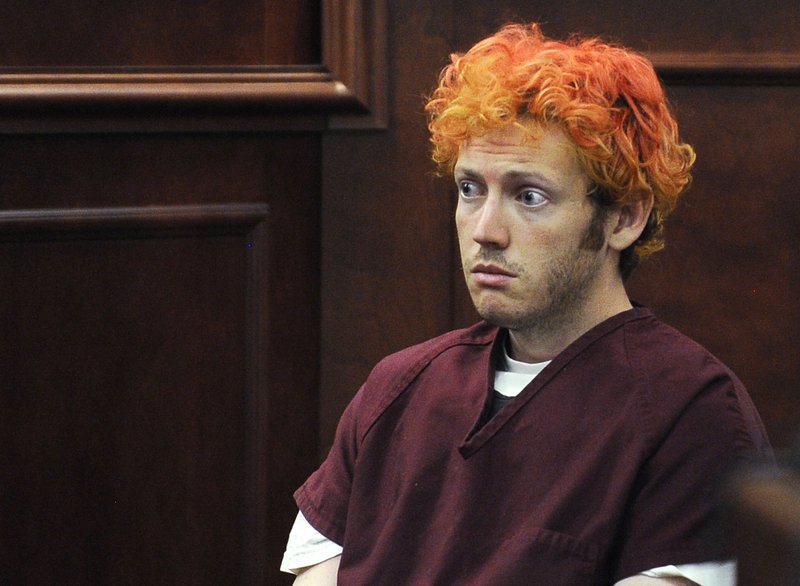CENTENNIAL, Colo. -- A defense psychiatrist who found James Holmes was insane when he killed 12 people in a suburban Denver movie theater testified Friday that he made his decision without reviewing all of Holmes' medical records.
Dr. Jonathan Woodcock also said he reached his conclusion after watching only a fraction of hours of interviews Holmes did with a court-appointed doctor who came to the opposite conclusion.
During cross-examination of Woodcock, District Attorney George Brauchler suggested jurors and others in the courtroom who had watched all 22 hours of Dr. William Reid's interview, in which Holmes talked at length about his planning and preparation for the shooting, had observed him longer than Woodcock had.
Woodcock interviewed Holmes four days after the July 20, 2012, shooting to determine whether he was competent to stand trial and then again earlier this year when he was asked by the defense to testify on Holmes' sanity.
Brauchler pointed out that Woodcock didn't talk to Holmes about the crime or his preparations for the shooting in either interview and had already completed a report concluding he was insane before the second, one-hour interview.
Woodcock said he watched about 30 minutes of Reid's interview and read about 100 pages of the 650-page interview transcript because he didn't have time to view it all. He also acknowledged that he did not question Holmes about the spiral notebook in which he wrote plans for the massacre.
Woodcock said he thought Reid asked leading questions in interviewing Holmes. He said he reviewed Reid's report based on the interview and did not find anything that would have changed his own conclusion about Holmes.
Brauchler spent hours picking apart Woodcock's assessment of Holmes during his two days on the stand. Woodcock was among the first witnesses the defense called in an effort to show Holmes was legally insane at the time of the attack.
Prosecutors in Colorado bear the burden of proof in insanity cases, so Brauchler is seeking to quash any doubt that Holmes was capable of knowing right from wrong when he planned and carried out the shooting.
Woodcock said he did not return a telephone call from a jail psychiatrist who wanted to consult with him about possible medication for Holmes soon after the shooting because he was not Holmes' treating physician. Brauchler suggested that could have been part of a strategy to leave Holmes' condition untreated to cause a dramatic outbreak later.
Under the prosecutor's questioning, Woodcock acknowledged he didn't remember key details, such as why Holmes wore toe-to-toe body armor, why he bought tear gas or that he used steel-piercing bullets.
"I don't remember," Woodcock said. "It's all really irrational."
If jurors find that Holmes was insane, Holmes would be committed to a state mental hospital indefinitely. Prosecutors are asking jurors to convict him and sentence him to death.
Woodcock testified that Holmes had been suffering for years from severe mental illness that made him "tremendously emotionally flat," which may have masked the extent of his problems from classmates and friends.
Holmes suffered a number of delusions, including the belief that if he told people about his plans to kill strangers, he would be required to carry out the action, Woodcock said.
A Section on 06/27/2015

